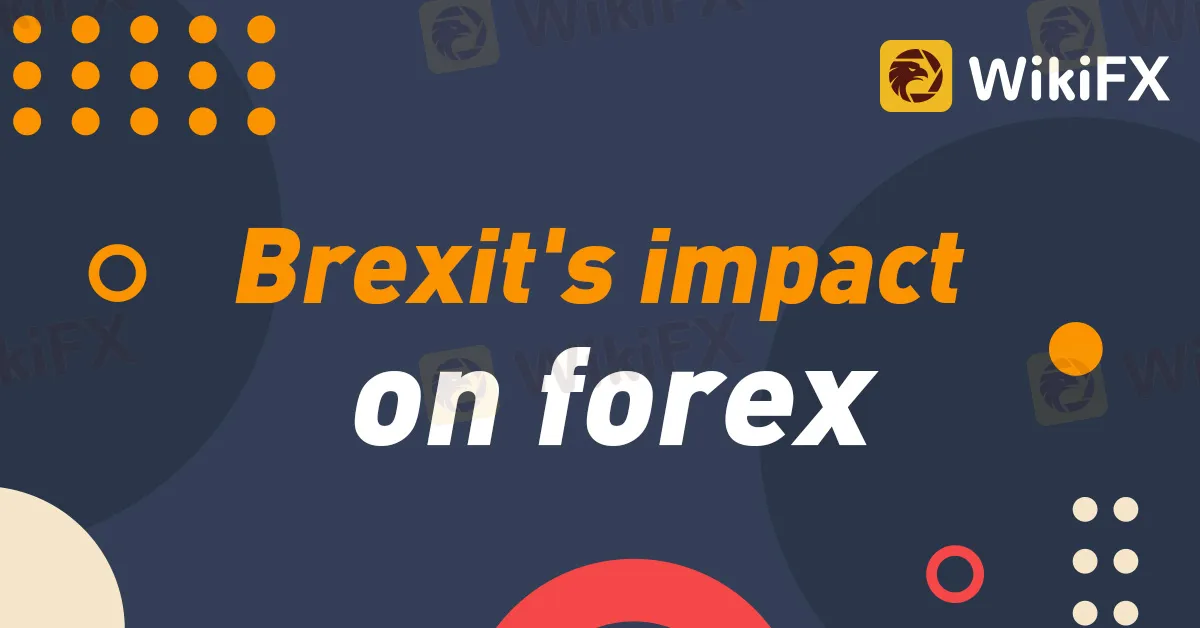简体中文
繁體中文
English
Pусский
日本語
ภาษาไทย
Tiếng Việt
Bahasa Indonesia
Español
हिन्दी
Filippiiniläinen
Français
Deutsch
Português
Türkçe
한국어
العربية
Brexit's impact on forex
Abstract:Brexit, the United Kingdom's decision to leave the European Union, had a profound impact on financial markets, including the forex market. The forex market, the largest and most liquid market in the world, was particularly sensitive to the political uncertainty and economic disruption caused by Brexit.

Brexit, the United Kingdom's decision to leave the European Union, had a profound impact on financial markets, including the forex market. The forex market, the largest and most liquid market in the world, was particularly sensitive to the political uncertainty and economic disruption caused by Brexit.
Before Brexit, the British pound (GBP) was one of the major currencies in the forex market, along with the US dollar (USD), the euro (EUR), and the Japanese yen (JPY). The GBP was valued based on its strength relative to other currencies, and it was widely traded by investors and traders around the world.
When the UK voted to leave the EU in June 2016, the GBP immediately plummeted in value. The uncertainty created by Brexit led to a significant increase in market volatility, as traders scrambled to adjust their positions in response to the news.
Over the next few years, the GBP continued to experience significant fluctuations in value as the Brexit negotiations continued. Every time there was a new development in the negotiations, whether it was positive or negative, the GBP would react accordingly. This created a very unpredictable trading environment, as traders struggled to keep up with the constantly changing news cycle.
Overall, Brexit had a net negative impact on the GBP. At its lowest point, the GBP was worth less than it had been since the mid-1980s, and it has struggled to recover since then.
Brexit also had a significant impact on the euro, which is the currency used by most of the countries in the European Union. As the UK and EU negotiated the terms of their separation, there was a lot of uncertainty about how the eurozone would be affected. This uncertainty led to fluctuations in the value of the euro, as traders tried to anticipate the outcome of the negotiations.
In addition to the impact on the GBP and EUR, Brexit also had broader implications for the forex market as a whole. The forex market is highly interconnected, with currencies from different countries and regions affecting each other in complex ways. When the GBP and EUR were experiencing volatility due to Brexit, this had a ripple effect throughout the market, as traders adjusted their positions in response to the changing conditions.
Overall, the impact of Brexit on the forex market has been significant and long-lasting. Even though the UK officially left the EU in January 2020, the fallout from the decision continues to be felt in financial markets around the world.
For traders looking to navigate this challenging environment, it's important to have access to reliable information and analysis. This is where WikiFX can help. WikiFX is a leading provider of forex market information, offering comprehensive data and analysis on currencies, brokers, and trading platforms.
With WikiFX, traders can stay up-to-date on the latest developments in the forex market, including the impact of Brexit. Whether you're a novice trader or an experienced professional, WikiFX's resources can help you make informed decisions about your trading strategies.
To learn more about WikiFX and how they can help you navigate the forex market, visit their website at www.wikifx.com. With their help, you can stay ahead of the curve and make smart trading decisions in even the most challenging market conditions.

Disclaimer:
The views in this article only represent the author's personal views, and do not constitute investment advice on this platform. This platform does not guarantee the accuracy, completeness and timeliness of the information in the article, and will not be liable for any loss caused by the use of or reliance on the information in the article.
Read more

The Impact of Interest Rate Decisions on the Forex Market
Interest rate changes determine currency attractiveness, influencing capital flows and exchange rate trends. Understanding this mechanism helps investors navigate the forex market effectively.

March Oil Production Declines: How Is the Market Reacting?
Oil production cuts in March are reshaping the market. Traders are closely watching OPEC+ decisions and supply disruptions, which could impact prices and future production strategies.

How to Calculate Leverage and Margin in the Forex Market
Leverage amplifies both potential profits and risks. Understanding how to calculate leverage and margin helps traders manage risks and avoid forced liquidation.

RM1.29 Million Lost in ‘C Baird VIP’ WhatsApp Scam
A 43-year-old company auditor and subcontractor in Malaysia became the latest victim of an elaborate investment scam after losing RM1.29 million to a fraudulent scheme promoted via WhatsApp.
WikiFX Broker
Latest News
The Withdrawal Trap: How Scam Brokers Lure Victims into Paying More
FCA to Investors: Think Twice Before Trusting These Brokers
Trump\s tariffs: How could they affect the UK and your money
Trump gambles it all on global tariffs he\s wanted for decades
TradingView Brings Live Market Charts to Telegram Users with New Mini App
Trump tariffs: How will India navigate a world on the brink of a trade war?
Interactive Brokers Launches Forecast Contracts in Canada for Market Predictions
Authorities Alert: MAS Impersonation Scam Hits Singapore
Stocks fall again as Trump tariff jitters continue
IG Group Acquires Freetrade for £160M to Expand UK Investment Market
Currency Calculator







